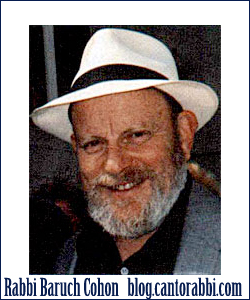You can contact Rabbi Baruch Cohon for further discussion and/or comments at: baruch.c.2011@gmail.com
WHERE DOES IT COME FROM? – by Rabbi Baruch Cohon – Vayeyra (Gen.18-22)
This week’s Torah reading ends with the famous story of the Akeyda, the Sacrifice of Isaac, which of course never took place, but condemned the heathen practice of slaughtering children as offerings. We had ample opportunity to discuss this story on Rosh Hashanah.
Two other themes get exposed in the very first sentence of this week’s reading. Easy enough to overlook, so let’s concentrate on those today. Abraham is seated in front of his tent “in the heat of the day,” and gets a visit from G-d. Our commentators learn some important lessons from this one sentence.
First of all, why this unannounced visit? It was a Divine example of doing the right thing: carrying out the responsibility to visit the sick. And why was Abraham sick? Rashi quotes the Talmudic sage Rabbi Hama bar Hanina: “It was the third day after his Bris (his ritual circumcision, the first in history) and he was still in pain, so the Holy One came to express concern about his health.” Bikkur kholim – visiting the sick – is indeed a sacred responsibility, a mitzvah, in Jewish life to this day. In fact we have whole societies and institutions by that name. When someone is ailing, the least we can do is show our concern.
Secondly, why was Abraham sitting outside his tent in the hot sun? Because he was on the lookout for weary travelers, to offer them shelter. Hospitality ranks with care for the sick as amitzvah. The Mishna Peah tells us that these actions – hospitality to wayfarers and visiting the sick — are two of the ten things we can do that bear fruit in this world, while their principal extends to the next world as well. Not just two of the 613 commandments received on Mount Sinai, but long before that, home hospitality and visiting the sick formed part of Abraham’s personality. Qualities like those, personal help for other people, set an example for all of us to follow.
Thank you, father Abraham.



Just to add to your comment. The text is also not clear as to how God appeared. Wa he one of the angels or in addition to. So some of the commentaries (see Hirsch) suggest that it was not a physical appearance but the two mitzvot that Abraham dod brought down uppon him God’s presence. That was the essence of the brit Milah. not only to do the good deeds but to seek God’s resence through them